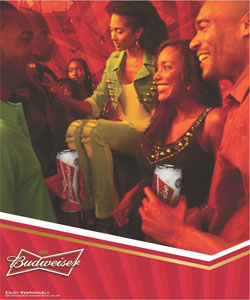U.S. tries “hip hop” diplomacy in Pakistan
Considered by many Pakistanis to be public enemy number one, the United States on Monday turned to the musical descendents of rap group Public Enemy in an attempt to counter its highly unpopular image in the south Asian nation.
As part of its cultural diplomacy program, the U.S. embassy brought the FEW Collective, a hip-hop troupe from Chicago, to Islamabad, where they danced, rapped and recited poetry to a Westernized, educated elite audience of young Pakistanis.
The group’s 10-day trip is the latest by a number of musical acts sponsored by the State Department as part of its American Festival of the Arts, a cultural program designed to promote exchanges between the people of the two countries.
“It gives a good impression,” said Atroz Abro, 20, who attended the show. “You rarely find such events in Pakistan… to pump up the youth by bringing something new.”
But FEW Collective has its work cut out. Only 12 percent of Pakistanis have a favorable opinion of the United States, according to a July poll by the Pew Research Center, while 73 percent have an unfavorable opinion and 16 percent don’t know.
These strong negative perceptions are often cited by the Pakistani military as one reason why Pakistan won’t tackle militants in its wild border regions where Taliban groups plan attacks on NATO forces in Afghanistan.
Rampant anti-Americanism in Pakistan also allows the government to avoid making needed — but unpopular — economic reforms demanded by international lending agencies, which are widely seen as aligned with the United States.
The goal, said U.S. assistant cultural attache Jamie Martin, is to show “that there’s another layer to the relationship. It’s not just government to government and military to military. It’s people to people.”
Such cultural events — which have included the Ari Roland jazz group and country-pop star Mary McBride — are part of a long-standing State Department tradition. Jazz greats Dizzy Gillespie and Dave Brubeck toured Pakistan in the late 1950s as part of the program.
PROGRAM IS WORKING
“I definitely think the State Department’s initiative to soften the image of Americans and America in Pakistan is working,” said Asad Jafri, a founder of the FEW Collective.
But, he added: “I think now we’re realizing as Americans that we can’t always export — as we do so well — culture and other things and say, ‘Hey, this is the kind of music we’re listing to in America. It’s great, it’s wonderful, you should listen to it too and maybe emulate it’.”
Jafri was born to Pakistani parents in Kuwait but taken to America’s Midwest aged 10 when the 1991 Gulf War broke out. He said he grew up hating his Pakistani heritage.
“It was something we were made fun of for being,” he said. But as he discovered more of his heritage, he found common themes between American and Pakistani musical forms.
“I see a trajectory between even traditional qawwali music and hip hop,” he said.
Qawwali is a beloved Pakistani musical form characterized by complex vocalizations and improvisation. One of its most talented artists, Nusrat Fateh Ali Khan, was an international sensation until his death in 1997.
Other members see their purpose in Pakistan as not only representing the United States, but empowering young Pakistanis to find their own voices.
Hip hop is “a movement of the people,” said lead vocalist Alsarah, who moved to the United States as a child after fleeing political oppression and war in Sudan and Yemen.
“It’s a culture of resistance to oppression,” she said. “I feel like there’s a lot here that’s brewing under the surface and a lot of things that people, especially youth, might really want to express that are not necessarily easily expressed or allowed to be expressed.”
Mahmud Ali Durrani, a former ambassador to the United States, said of the embassy’s efforts: “I think it has a real value, particularly when the level of mistrust is so high. But it has to be sustained and it has to be expanded.”
He acknowledged that the embassy and the performers were likely playing to a sympathetic audience of the urbanized elite, but he also said that wasn’t important.
Alsarah agreed: “While we may be preaching to the choir here, what we came to do is to hand over tools so the Pakistani people can represent themselves.”
Audience members seemed happy with the evening’s entertainment but declined to be drawn on politics.
“We like the people of the United States,” said Walid Khan, 21. “We don’t have any comment to make about the government though,” he said, and turned away.







